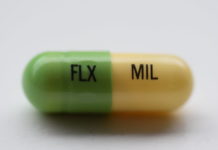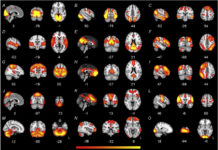Non-Gender Affirmative Treatment Detrimental to Mental Health
Gender identity conversion efforts impact psychological distress and lifetime suicidality in transgender people.
How Social Dynamics at School Impact Teen Suicide
Teen suicide risk is influenced by relationships with adults and teachers, perceived popularity, close friendships, and school connectedness.
How to Involve Youth in Their Own Mental Health Care
Clinicians play a key role in empowering adolescents and their parents to make decisions about their mental health treatment.
Connectedness at School Related to Students’ Emotional Health
New research highlights differences in levels of school connectedness among students diagnosed with emotional and behavioral disorders,
School-Based Mindfulness Leads to Stress Reduction, Study Finds
Researchers find improvements in stress-related outcomes among middle school students exposed to a school-based mindfulness training program.
Adding Fluoxetine to Therapy Not Superior to Therapy Alone in Depressed Teens
The addition of fluoxetine to CBT did not further reduce depressive symptoms in young people with moderate-to-severe depression.
Teacher Perspectives on Student ADHD Medication Use
Qualitative study examines patterns in teacher attitudes and knowledge related to medication of students for ADHD-type behaviors.
Antidepressant Use More Than Doubles Risk of Suicide Attempts
Throughout the past two decades, studies have warned of increased suicide rates in those taking antidepressants, especially in children and adolescents. Researchers also documented...
Traffic Pollution Linked to Anxiety and Depression in Childhood
New research explores the impact of exposure to traffic-related air pollution on levels of anxious and depressive symptoms in childhood.
The Emotional Impact of Critical Consciousness on Youth
Middle school students with critical consciousness of US politics and inequality exhibit more emotional distress and lower academic achievement.
Parent Training as Effective for Childhood Anxiety as Therapy
Yale study finds that training parents how to react to child behaviors is as effective at reducing anxiety as providing therapy to the child.
Biomedical Model of Mental Illness Creates Stigma for College Students Using Services
A study conducted on college-aged students finds strong correlations between biomedical characterizations of mental illness, pharmaceutical treatment, and social stigma.
Why Are the Youngest Children in a Classroom Diagnosed with ADHD?
A new article examines the implications of relative age on the ADHD diagnosis.
Are Mental Health Screenings for Youth Worth the Risk?
Researchers shed light on the limitations of mental health screening instruments for youth that are increasingly being used in schools and medical settings.
Marginalized Youth Feel Unheard and Unhelped By Mental Health Professionals
A new study suggests the way that marginalized youth view the mental health treatment they have received plays a role in the continuation of their care once they reach adulthood.
Yoga and Mindfulness Benefit Youth with Autism Spectrum Disorder
A new review finds preliminary evidence for yoga and mindfulness-based interventions for youth diagnosed with Autism Spectrum Disorder (ASD).
Children Taking ADHD Drugs More Likely to Take Antidepressants as Teens
Adhering to a commonly prescribed medication for ADHD in children is associated with higher chances of being prescribed antidepressants in adolescence.
Teacher Wellbeing Matters for Student Mental Health
Teacher’s personal wellbeing plays a role in students’ mental health outcomes, suggests a new study.
Exposure to Antidepressants in the Womb Linked to Autism
Researchers, publishing in Toxicology Research, review the evidence that antidepressant exposure in the womb is linked to autism spectrum disorders (ASD) in humans.
Exposure to Antidepressants in the Womb Linked to Autistic Behavior in Mice
Researchers experimenting on mice found that exposure to fluoxetine (Prozac) in utero resulted in behaviors considered in animal studies to be analogous to autism in humans.
The Role of Intergenerational Trauma in the Perpetuation of Childhood Maltreatment
A new study examines the role parent borderline pathology plays in the perpetuation of childhood maltreatment.
More Physical Activity-Based Mental Health Interventions Needed in Schools
What physical activity-based programs are being implemented in schools, how are they being researched, and what kind of impact have they made?
No Brain Connectivity Differences Between Autism, ADHD, and “Typical Development”
Neuroscience researchers find no differences in brain connectivity between children with diagnoses of autism, ADHD, and those with no diagnoses.
When Does it Help to Have Background Information in Child-Centered Play Therapy?
Knowing the client’s history can help foster genuine empathic responding, a key component to child-centered play therapy.
Adderall Use Associated with Increased Risk of Psychosis
Twice as many teenagers with ADHD experienced severe psychosis when taking Adderall, as compared to Ritalin, according to a new study.

































